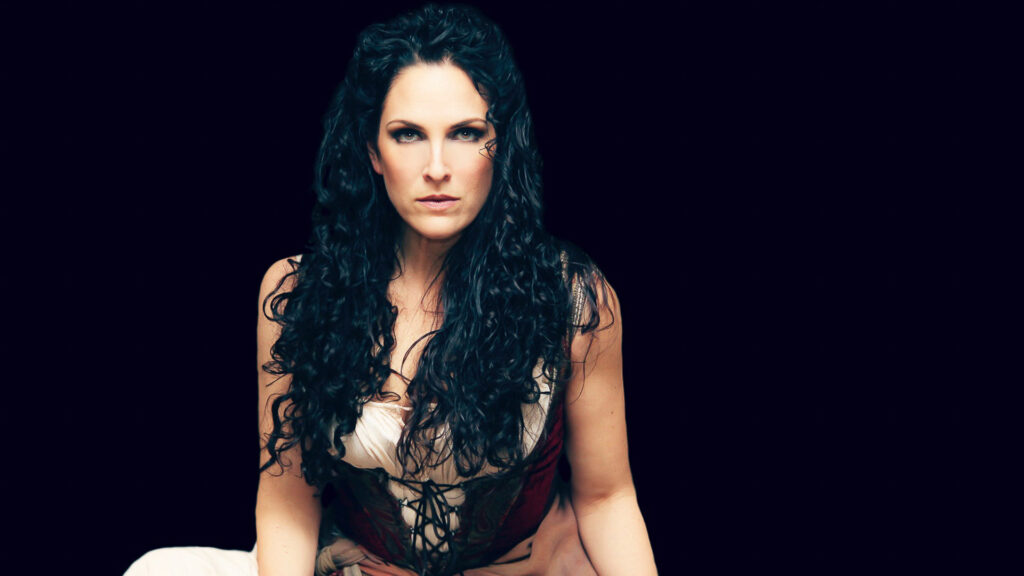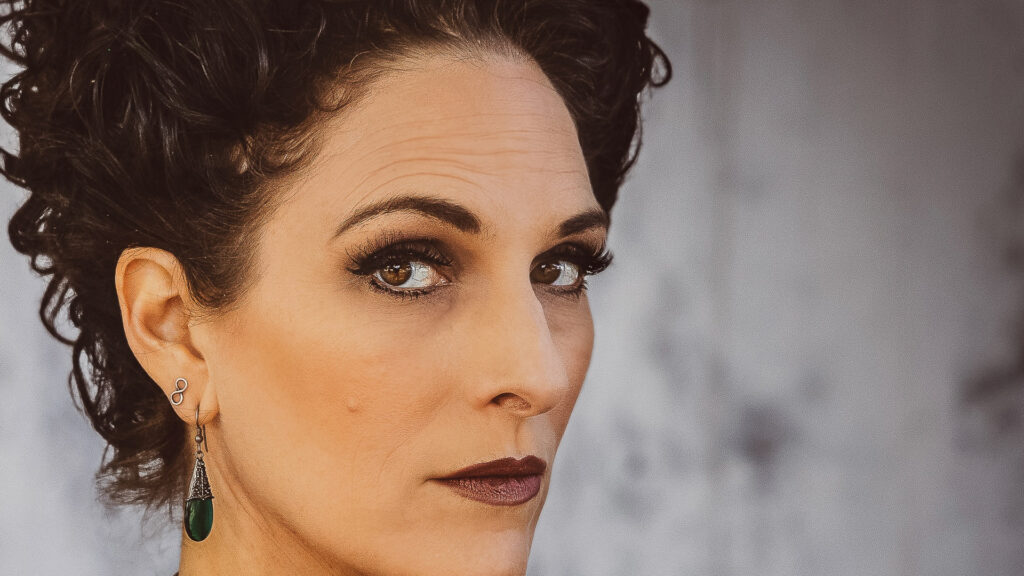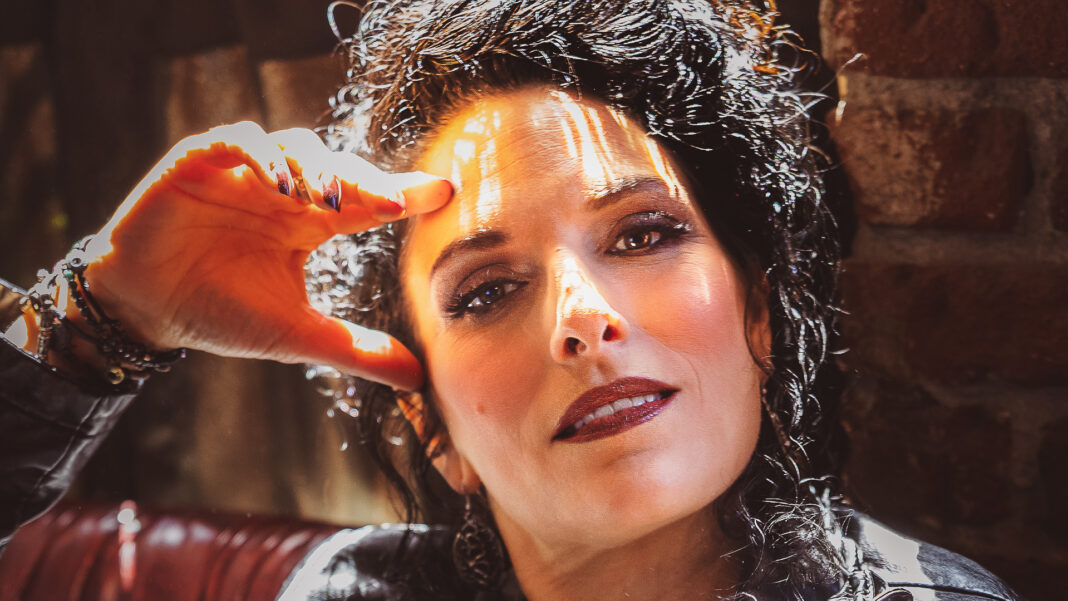When the Verdi Chorus of Los Angeles takes to the stage for their concert on Saturday, January 20th at the First Presbyterian Church in Santa Monica, it will be an evening of firsts. This concert will mark the first time in the forty year history of the Verdi Chorus that they will perform an opera in full when they perform Pietro Mascagni’s Cavalleria Rusticana. It will also mark the role debut for mezzo soprano Audrey Babcock who will sing the role of Santuzza in this concert.
Santuzza is a woman who has been Turiddu’s (Todd Wilander) lover, but she has been cast aside in favor of Lola. Santuzza doesn’t take too kindly to the snub and informs Lola’s husband, Alfio (Roberto Perlas Gómez), that his wife is being unfaithful. It’s an Italian verismo opera, so you know where this one is headed.
Babcock has performed at Carnegie Hall and with opera companies across America. She is best-known for her performances as Carmen in Bizet’s beloved opera. She is also regularly found in contemporary works having their premieres including Tobias Ricker’s Thérèse Raquin and Winter’s Tale at the Prototype Festival. Babcock regularly works in musical theater having performed lead roles in productions of five Stephen Sondheim musicals.
Last week I spoke with Babcock about her role debut, working with the Verdi Chorus and about another Italian role – in a Sondheim musical – that remains amongst her favorites. What follows are excerpts from our conversation that have been edited for length and clarity. To see the full interview, please go to our YouTube channel.
Q: What interested you most about making your debut in a concert version of this opera?
It’s the perfect way to make a debut because you really get to focus on the music. It’s a really beautiful way in to just really nail the language, the text and get into the plot points in the melody without having to worry about all the things like props and costumes and direction. To just really dig into the work with the musicians around you.
Does that still require doing the same level of character development?
Absolutely. And things grow over time. As we grow with the part and continue to perform it, it grows and we get really comfortable. But sometimes those uncomfortable performances are magical, too, because we are on our toes and we are having to think fast, sing fast. Sometimes that’s where the magic is too.

The world premiere of Cavalleria Rusticana took place in 1890. Gemma Bellincioni is the one who who created the role of Santuzza. How do you think your contemporary eyes may be looking at this piece differently than perhaps it was first regarded by the woman who originated this part?
Well, there would be a lot of suppositions coming out of my mouth. Starting now. Considering the time and considering what opera was and what opera has become, I would assume there was a lot more standing and singing, a lot more focus on purely just bel canto and not engaging with your colleagues. This is a traditional sort of park and bark opera, except that it is what started or defined verismo. In verismo we have very real feelings that we’re all trying to heal so that we don’t act like toddlers in public. But these are really unhealed, unhinged humans having visceral reactions in public spaces all about heartbreak and love on such an intense level.
What appeals to you most about who Santuzza is?
What appeals to me most about her is her ability to go directly to the source of her pain. Ask him to stop in a time where that was never done. Women did not have agency. They were told to obey and they accepted a certain level of abuse, physical and otherwise. She fell madly in love with this man and had an out-of-marital affair with him, which she knew was risky. But she believed in their love. Then she got screwed. She just went in and was like, why are you doing this to me? How could you do this to me? She took such a huge risk with her heart and she opened it up for him and she got in trouble. She probably learned a really huge lesson after this and she probably never loved again. But she made some big decisions based on following her heart.
There are varying ways how fans perceive Santuzza in the opera. There are a lot of people who argue that she’s a very simple character or a passive one. There are others who think she’s a far more complex woman than people give her credit for. Do you have an opinion about that and does that opinion influence how you perform the part?
She’s living in Catholic world and by the rules of the church. She has moved outside of this rule because she believes something true to her heart could not be bad. So she’s a woman who thinks for herself. Now, we don’t always make the best decisions as humans, and this is what we’re discovering with Santuzza. She’s made this decision that did not work out, but she had enough self-actualization to choose something that she was told not to do. So for me, she is a woman beyond her time and who thinks outside the box and who follows her heart. I think she’s got quite the backbone. She’s very strong at the end of the day.
You’re doing this concert with the Verdi Chorus. Does it feel like there’s a learning curve with this, or has their background of performing excerpts from operas given them the ability to just effortlessly go into performing this piece?
I think the Verdi course is a well-oiled machine. They know what to do. This is such a chorus heavy piece, which is why we’re doing it. They’ve learned most of the music prior to this concert. It won’t be the debut of all the pieces within it. So they’ve had a trial run of a lot of it. I think this will be an exciting climax to their time with the Verdi Chorus to actually do an opera, to move around, to memorize the music.
As a soloist, this is what we do all the time. So for us it’s fun too. I’ve sung with Roberto and Todd for years, but we’ve never been able to have full characters fleshed out over an evening together and to emote in the same space over time. So this, for us, is super exciting, and I can imagine for them it’s going to be, too. That space the acoustics are so great, we’re going to surround it with so much sound. We’re going to shake the rafters.
You like to shake the rafters, as you say, about contemporary works as well. What is your opinion of the state of contemporary opera today and what excites you most about it, and what, if anything, concerns you about it?
I love contemporary opera. I love that we’re exploring contemporary issues. I love that things are getting smaller. So we’re having more chamber opera, smaller orchestras, smaller casts, so that it is affordable to produce. What is essential in my mind is that we keep our art from growing. To keep it growing, we need to keep producing it and we need to make it affordable and big. Grand opera is not affordable. But within that it has to be excellent. The composers we’re working with a lot today all know that.
Things are harder to sing now. So we must be better singers and we must figure out how to do this because we are telling really important stories. We are creating new spaces for performing, not just theaters. We’re doing a lot of site specific stuff, which I think is great. Bringing the art form to the people.
You’ve created opportunities for yourself, whether that’s through your shows, Lily or Beyond Carmen. You’re giving yourself an opportunity to be seen apart from opera or on your own terms. How important is it or how necessary is it for you to carve out your own space and not rely just on the opportunities that come to you?
I have this intense drive to create. I didn’t get into opera because of opera. I got into opera because I have a big voice and a lot to say. But it turned out I loved opera. I didn’t know opera before I wound up in one. I’ve always been a theater person and an actor person and a singing person and a musician person. I played the flute forever. It’s absolutely essential for me to create and I love that my career is so varied. I’m doing things that, if you told my eight-year-old self I would get to do, I wouldn’t believe you. It’s so amazing and it makes me feel well-rounded. I’m not one who likes to put all my eggs in one basket. I’m so grateful for all these opportunities.

You’ve done five Stephen Sondheim musicals. One of them is a musical that I hope gets rediscovered at some point the same way Merrily We Roll Along is being rediscovered right now in New York. That’s Passion. What do you think the future might hold for Passion?
I’m a very old soul, I guess. I was born to do these parts that I’m now the right age for. I think people, maybe ten years ago, before Hamilton, went to musical theater to laugh. Sondheim had a mixture of both. But Passion was just drama, straight drama. I think people were disappointed in that. They wanted to go see a musical. If opera companies will take it on, it’ll do well because our audiences are used to seeing sad things where people die all the time.
The composer of Cavalleria Rusticana, Pietro Mascagni, is quoted as having said, “Modern music is as dangerous as narcotics.” What would you tell him about what modern music is today and how his opera is being received in the 21st century?
Well, he gave us a really good gateway drug. There are a million things it could mean, but I see his point. We’re just going further and further away from where we started. We have strayed so far from the rules of counterpoint and harmony, but we still study them. At least in the classical world, we recognize where our traditions come from. I believe, though, as artists it’s our job to push. It’s our job to question. It’s our job to say yes and and move forward. If we stay in the same it’s boring and it’s counter-revolutionary.
We must create more outside the box work and we must create culturally important work so that it matters. If we’re just singing because we like to sing, there’s zero point. If we’re just putting on performances for the actors involved because we want to put on a show, we can’t sustain that. We need to create work that is vital, that is important, that touches people, that has some sort of cultural implication. Then we get to not just do what we love, but have some sort of social and cultural impact that is lasting. I think that’s what fuels new music today.
To see the full interview with Audrey Babcock, please go here.
Main Photo: Audrey Babcock (Courtesy The Verdi Chorus)










